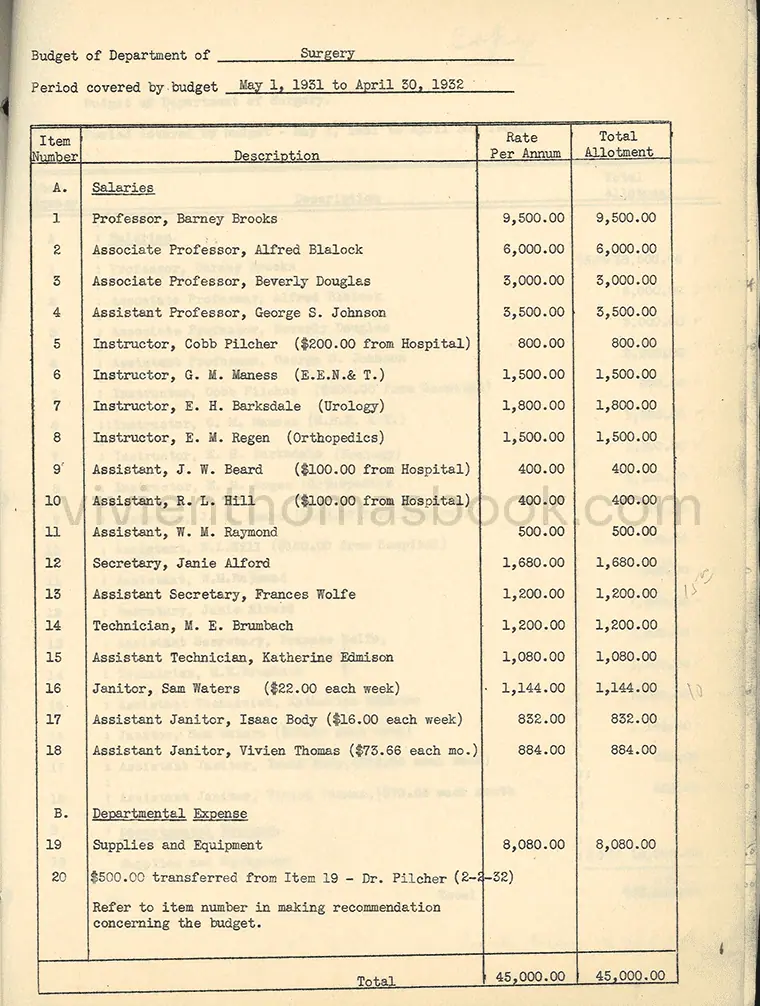

As soon as he graduated from Pearl High School in June 1929, Vivien Thomas started a carpentry job at Fisk University, a short walk from his house in Nashville. His annual salary allowed him to save money because he hoped to attend the local state university where tuition was free, but books and fees were not. Unfortunately, on September 29, 1929, the stock market crashed; Fisk University had to let him go. He was bitterly disappointed and frightened for his future. He needed to find another job, which was very difficult during the Great Depression.
In early February 1930, Thomas, now nineteen years, was hired by Dr. Alfred Blalock, who was thirty-one, as a surgical laboratory technician at Vanderbilt University’s Medical School in Nashville. His task was to conduct experimental surgeries on lab animals to find cures for medical problems. Nearly all his surgical experiments were aimed at finding a way to treat traumatic shock, which, at the time, was typically fatal. Soon he was working independently in the lab, but he was unhappy with his low pay, which was much less than he’d earned as a carpenter at Fisk. Still, he realized that he enjoyed working in medical research, which is why he continued to work at Vanderbilt University, although he still planned to start college and then medical school as soon as the economic crisis ended.
Vivien Thomas would be dogged by low pay during his entire career because he was a Black man working at universities (Vanderbilt and, later, Johns Hopkins) that were deeply segregated. He did not come close to being compensated fairly until a few years before he retired. This image shows that Thomas, who was working as a surgical lab tech, was classified by Vanderbilt as “an assistant janitor” and paid very little. Vanderbilt could get away with treating Black workers unfairly because there were no laws yet against pay discrimination.
© 2024 Writer's Cramp, Inc. All rights reserved.
